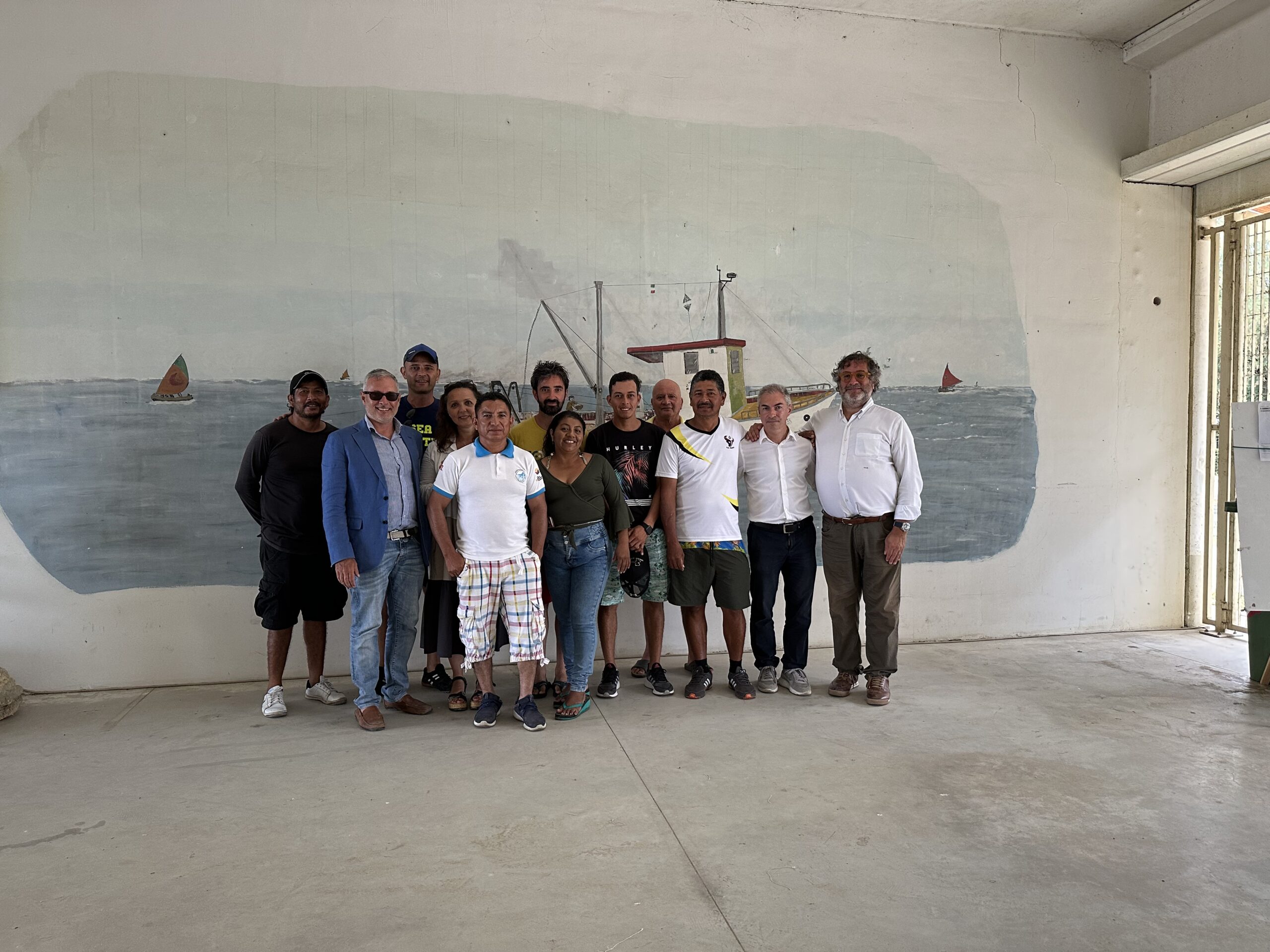MAELSTROM e WINBLUE joint efforts in decentralized international cooperation for blue economy

In multiple countries, blue economy has supported the development of local economies, while helping to increase the socio-economic growth of local communities and monitor natural resources and biodiversity of several marine ecosystems. If the local communities are supported by know-how transfer, sustainable, inclusive and novel methods for blue economy sectors, several benefits could be effectively implemented by substantially reducing environmental pollution and preserving marine ecosystems.
In this context, partners and stakeholders of three relevant European and international projects, WINBLUE (EMPFAF 2023-2025), MAELSTROM (H2020) and ISOSPAM (funded by AICS – the Italian International Cooperation Agency – for Ecuador) have joined forces to share know-how and experiences on 28 and 29 June 2023.
The partners ISDI Ltd (Malta), VLPF (Italy) of the MAELSTROM project, and Biochica Srl (Italy) of the WINBLUE project have organized several encounters with entities and stakeholders encompassing the educational, developmental and fishery sectors, with a specific gender-sensitive approach, as it follows:
- AMAP (Innovation Regional Agency for Agricultural and Fishing sectors) of Marche Region (Italy). Discussions and interviews focused on the regional observatory of blueconomy activities, future perspectives, and inter-project cooperation for the ADRION (Adriatic and Ionian) region.
- ITT Montani of Fermo (Italy) and Polytechnic of Montreal (Canada) with a focus on novel applications of fishing residues as biobased products and new opportunities that R&D applied to biotechnology can offer to young generations, especially to women.
- Partners of ISOSPAM Project: representatives from local fishery communities from Ecuador (Manebì Region) in cooperation with the Italian NGO COSPE, were introduced to the EU-funded projects MAESLTROM and WINBLUE. In particular, new practices of recovering and recycling plastics composites (MAELSTROM) and promoting women in the blue economy sector (WINBLUE) were adequately presented and discussed. The local community representatives were also interviewed in collaboration with the Blue Marine Service of San Benedetto del Tronto (Italy). Moreover, the meetings set in place created new understanding, synergies, and transfer of know-how concerning the valorization of marine litter and aquatic residues and share experiences about women’s role in the blue economy. Further joint actions will be then identified to support local blue-economies, both for the traditional sector (maritime transport, fish and aquaculture sectors, and sustainable tourism) and emerging sectors such as sustainable renewable energy and blue biotechnologies, providing economic, social and environmental co-benefits.